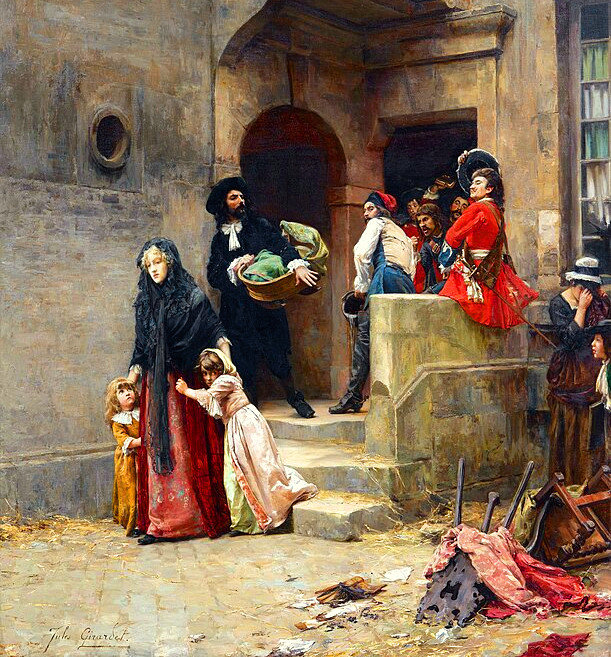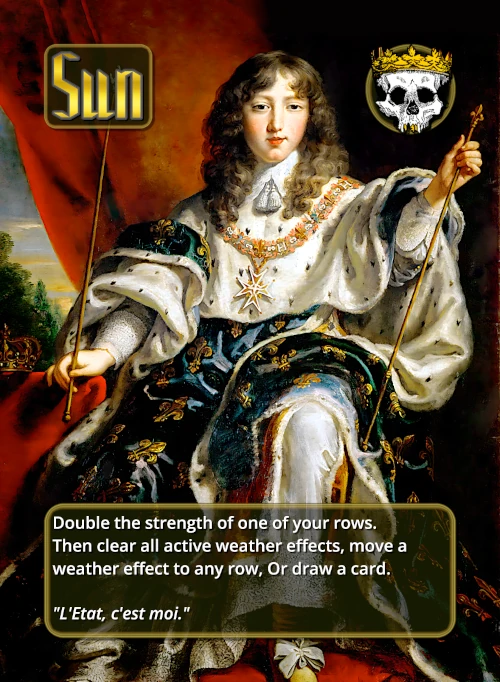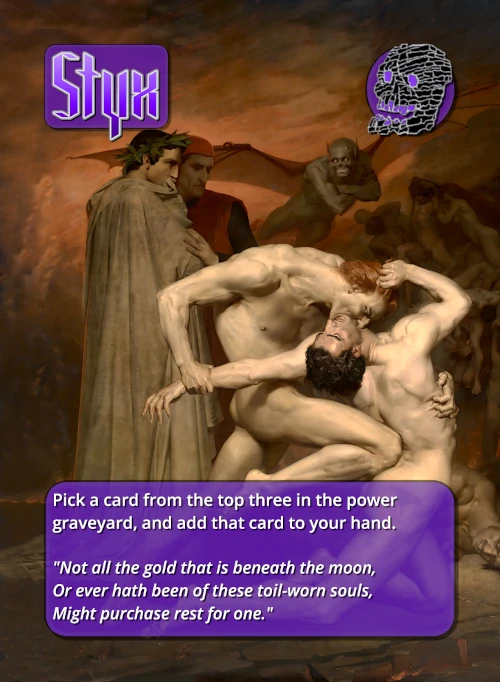Type: King
Effect Text: Double the strength of one of your rows. Then clear all active weather effects, Or move a weather effect to any row, Or draw a card.
Flavor Text: "L'Etat, c'est moi."
Flavor Source: Pierre-Édouard Lémontey, Essay on the Monarchical Establishment of Louis XIV and on the Alterations He Underwent During the Life of that Prince
Artwork: King Louis XIV by Justus van Egmont (1654)
Strategy:
All King cards allow you to double a row of your choosing, essentially functioning as a trump card for the round. Your opponent will likely need to play their King card or some other counter to remain competitive in that round. Remember, Kings also come with the choice of a unique effect (in addition to doubling a row), allowing you to tailor your strategy as the game unfolds. The Sun King’s unique powers give you access to the same weather effect as Gale, or drawing a card.
About the card:
By the time of King Louis XIV's reign, France was the most centralized that it had ever been. The French Kings since the times of Charlemagne were plagued by strong dukes who often wrestled for control with the monarchy and often were quite successful. Some of these nobles, like the Kings of England (see also Knight), held their own domains outside of France making it difficult for the French Kings to assert any real control on their more powerful subjects. The Huguenot Protestants were one such group who had successfully fought and won against the Monarchy in the past in order to attain rights and privileges. Under the rule of Louis XIV's father, Louis XIII, and his minister Cardinal Richelieu, the Huguenots had largely been defeated, many of their privileges were revoked, and their fortresses destroyed (see also Traitor King).

Although the Huguenot rebels had been defeated militarily, Louis XIV saw there very existence, and the religious rights they still held onto, as an affront to the power of the Monarchy. Unlike his predecessors, who largely made concessions to the Huguenots because they could not defeat them outright, Louis XIV was in a much stronger position. So in the late 1600s, Louis revoked the rights of the Huguenots, barring them from public service, destroying Protestant churches, and forcibly baptizing many. In some provinces, dragoons were made to quarter in the homes of Huguenots and harass them daily until they converted. Persecution would continue for the next hundred years with some 200,000 Huguenots converting to Catholicism and an additional 200,000 leaving for other Protestant parts of Europe and the Americas.






